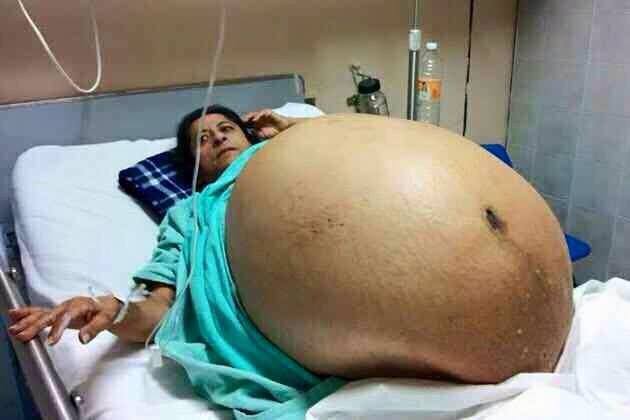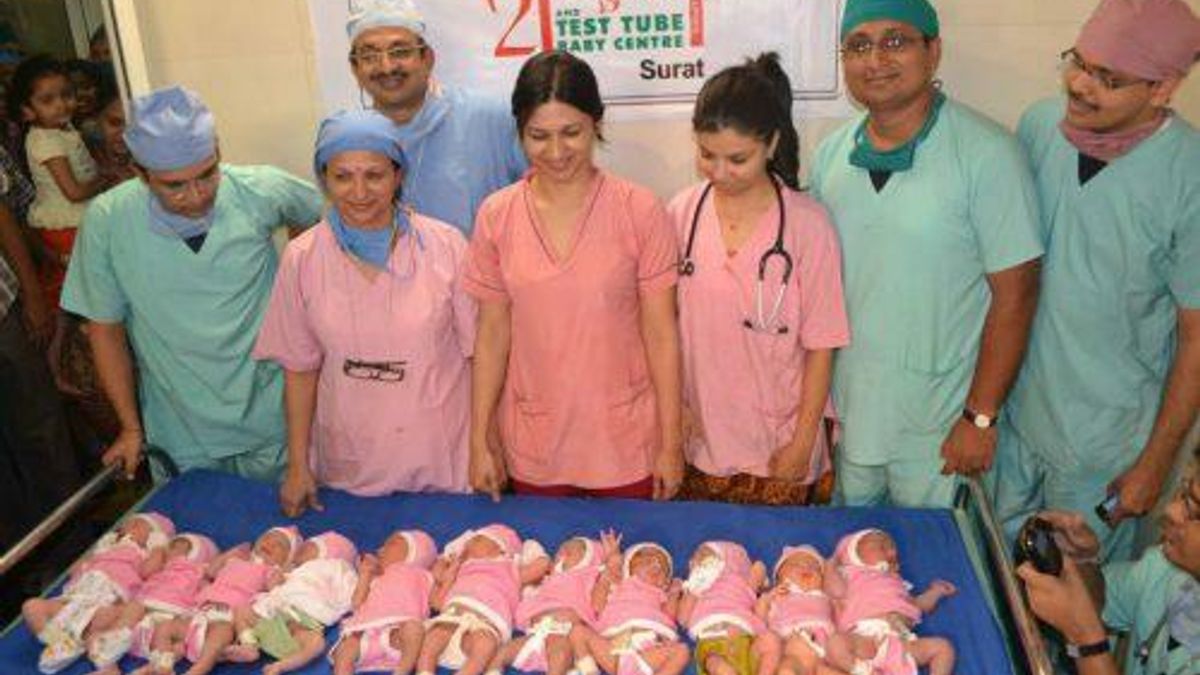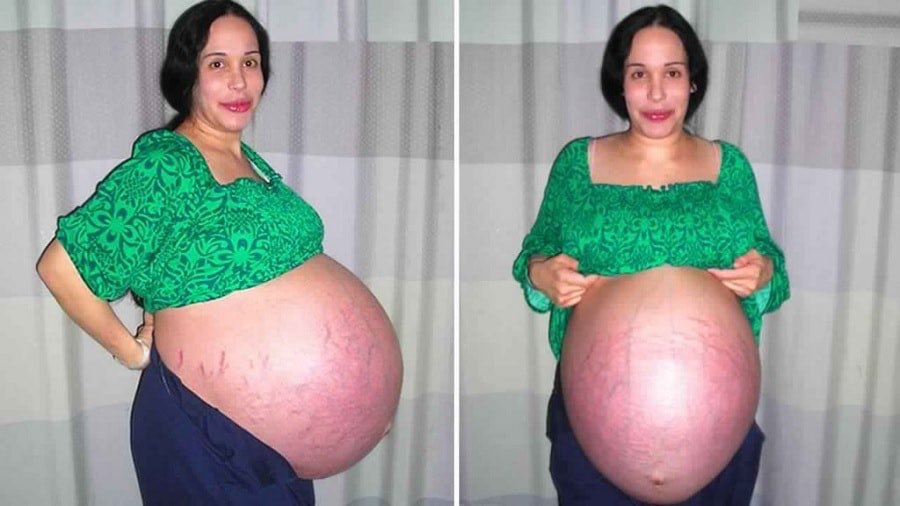 A supermom gave birth to eleven infants at once somewhere in India, specifically in Surat.
A supermom gave birth to eleven infants at once somewhere in India, specifically in Surat.
You read it correctly: eleven infants! Is this factual, or is it simply an urban legend fueled by some excellent Photoshop work? Well, while the picture shown speaks for itself (and we all know how pictures can be misleading), anonymous sources indicate that the eleven sweet little bundles of joy photographed above are actually the eleven babies born on the unique day of November 11th, 2011 (11/11/11).
Now, there is a little bit of truth in the picture of the eleven kids. Six of them had been born to the same mother as twins. The remaining five, on the other hand, are just lucky infants who were born on a special day. But hold on a second! It claims that calls to the Guinness Book of World Records were made to recognize the incredible achievement, and they stated that “unofficial sources” are prepared to provide even more proof of the incredible delivery of eleven infants to the same mother.
Just so you know, at this point, no official news agency has been able to confirm or deny the information that a woman gave birth to 11 kids in just one pregnancy. So let’s take a step back and analyze the situation medically and logically. Is it possible or not for a woman to carry 11 fetuses in her womb and to actually deliver them all alive?
Several births can occur naturally, such as when a woman ovulates more than one egg every month, in which case they can all be fertilized, or when she produces just one egg but it splits immediately after fertilization, resulting in multiple embryos, according to medical publications. Multiple births are becoming increasingly common as a result of infertility therapies like In Vitro fertilization. This is the procedure which “implants” more than one fertile egg in a woman’s womb, in hopes that at least one will be accepted by the body. Also, the use of fertility drugs can lead to multiple egg ovulation, hence multiple babies.
The same question about how it is possible arises for the twins born months apart.
As many of you are well aware, sextuplets (six babies at one shot) are no longer a rarity these days. In fact, more and more cases of women giving birth to 6 healthy babies are registered. But what would you say about 7, 8, or more babies at once?
In 1997, the first medical case of surviving healthy septuplets was recorded in the United States. Three girls and four boys were born with sizes ranging from 3 lbs and 4 ounces to just barely 15 ounces.
Do you think 7 isn’t amazing enough? How about 8 babies at once?
In 1998, a set of octuplets was born in Houston, Texas. The first of the babies was delivered 15 weeks premature, while the remaining twins were kept inside the womb for two more weeks, and then delivered by a caesarean section. Unfortunately, the tiniest of them died after just one week, but the remaining 7 are alive, well, and enjoying life.
In another case, the 45-year-old ‘Octomom’ Nadya Suleman, who has a total of 14 children, took to Instagram on Tuesday night to wish a happy birthday to the eight children she famously welcomed via IVF in 2009. Luckily, they all grow very healthy.
So far, all of the reports of multiple babies beyond octuplets do not have happy endings. In 1999, a Malaysian woman gave birth to 9 babies, which were officially the most babies in one birth. Sadly, all babies died within 6 hours of living.
The world record for a natural pregnancy is held by a woman in Argentina, who was pregnant with 12 embryos. Unfortunately, none of them were viable.
In 1971, a woman conceived no less than 15 babies and delivered them all, not at once, with multiple Caesarean sections. Alas, all of the babies also died shortly after birth.
The sad truth is that multiple babies usually involve complicated medical issues in the long run. And even though the babies survive birth, the facts prove that many end up suffering from different causes related to their crowded life in the womb.








